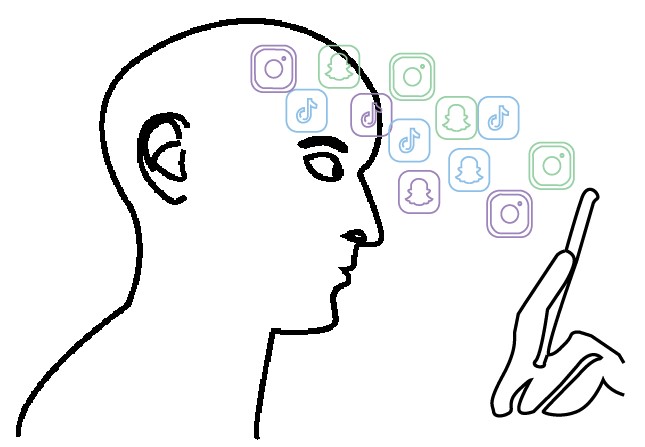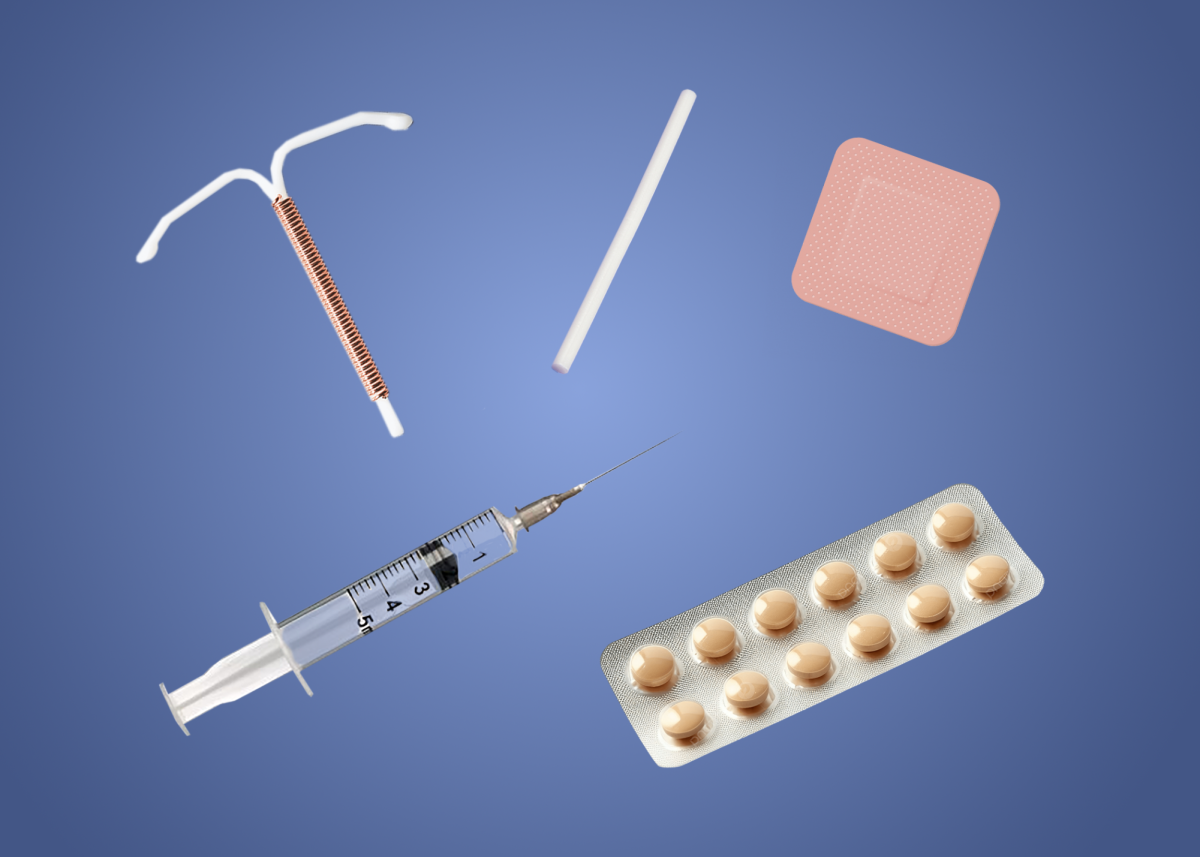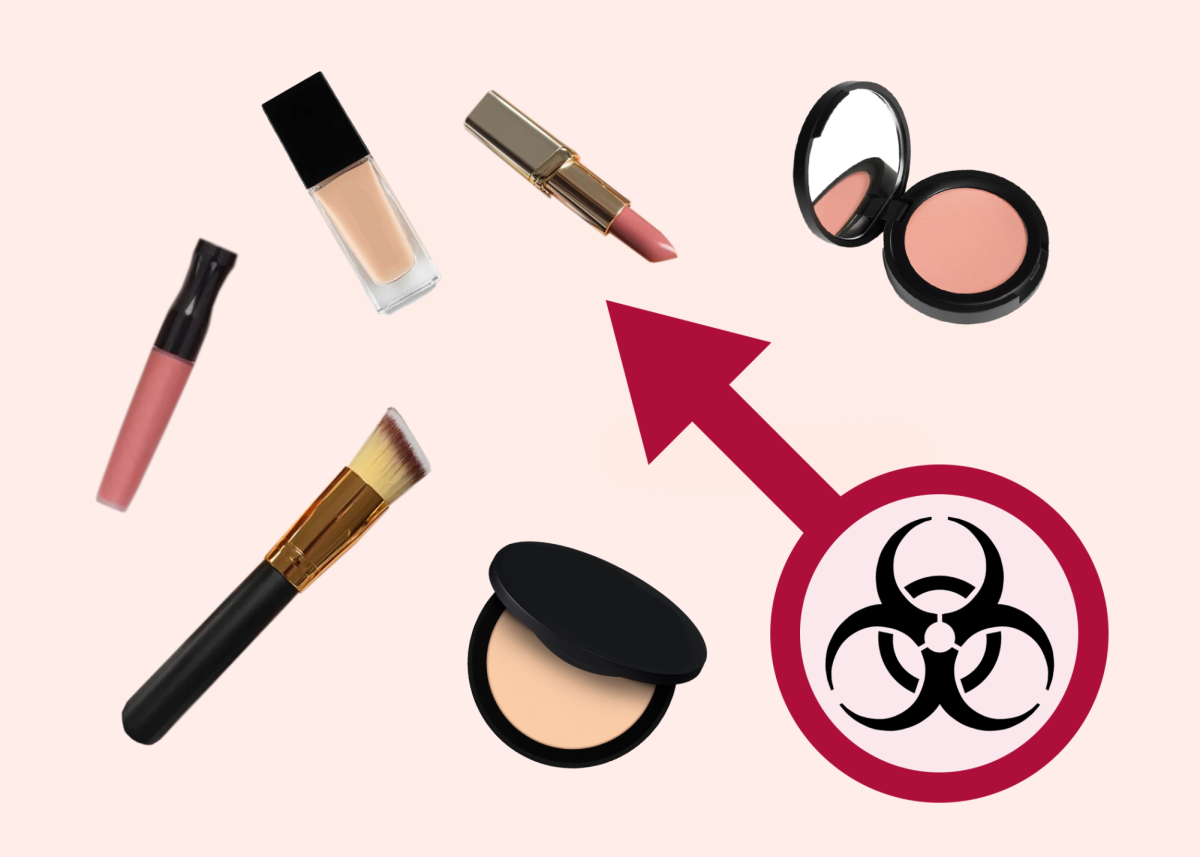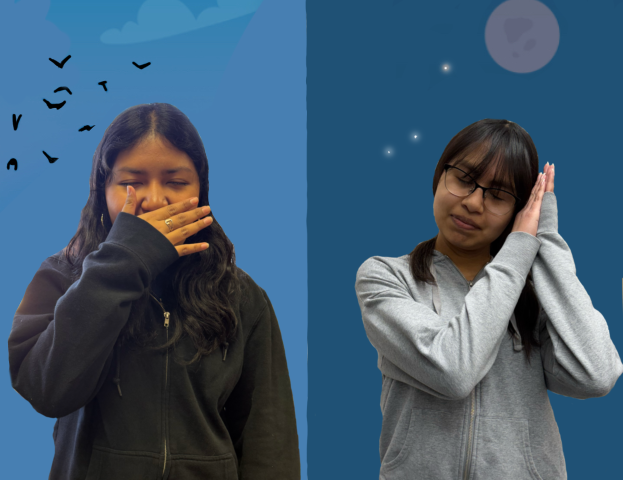Getting on your phone, opening tik tok, there you go: stuck for hours on end scrolling into an empty abyss. Each video is like a drug stimulating your brain into a mental high. The chemical transmitting this happy feeling is called dopamine.
Constantly receiving notifications on social media, flooding your phone with feedback of your posts can increase your dopamine levels to create a cycle of addiction. Like drugs, this high that you are creating leads your brain to desire the feeling of pleasure that dopamine releases into your brain. Especially for teens, this addiction can be dangerous. It leads to feelings of stress, anxiety, and depression when your dopamine is not releasing that feeling of pleasure into your brain. Your brain craves the feeling so much that you can’t stop yourself from scrolling through social media.
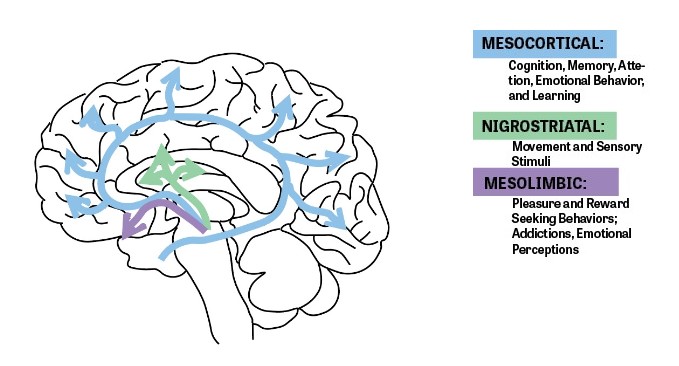
“The short-term, dopamine-driven feedback loops that we have created are destroying how society works,” Chamath Palihapitiya, former Vice President of User Growth at Facebook said during a talk with Stanford students.
Dopamine is a chemical messenger known as the “happy hormone”. The chemical is a response released for emotional feelings of pleasure and reward. Dopamine releases the happy response in our brain when doing an action that may cause you to become addicted to that action or feeling.
With social media flooding your brain with dopamine surges, there are more healthy ways to feed your dopamine. A common example would be reading a book. Taking a break from social media and your phone, to sit down and enjoy a good book will release more healthy dopamine surges in your mind. Another way to healthily release dopamine in your brain is to go to the gym or exercise in general. Whether you are running or lifting weights, your body is improving from fitness and your mind is staying healthy with the positive benefits of fitness.
So if you’re a teen and trying to find ways to reduce your anxiety, consider balancing out your use of social media with healthy activities and habits.
We get the dopamine high by checking cell phones… getting likes, being tagged and watching things that we think are funny on Tik Tok
Jenny Martinez- Psychology teacher

